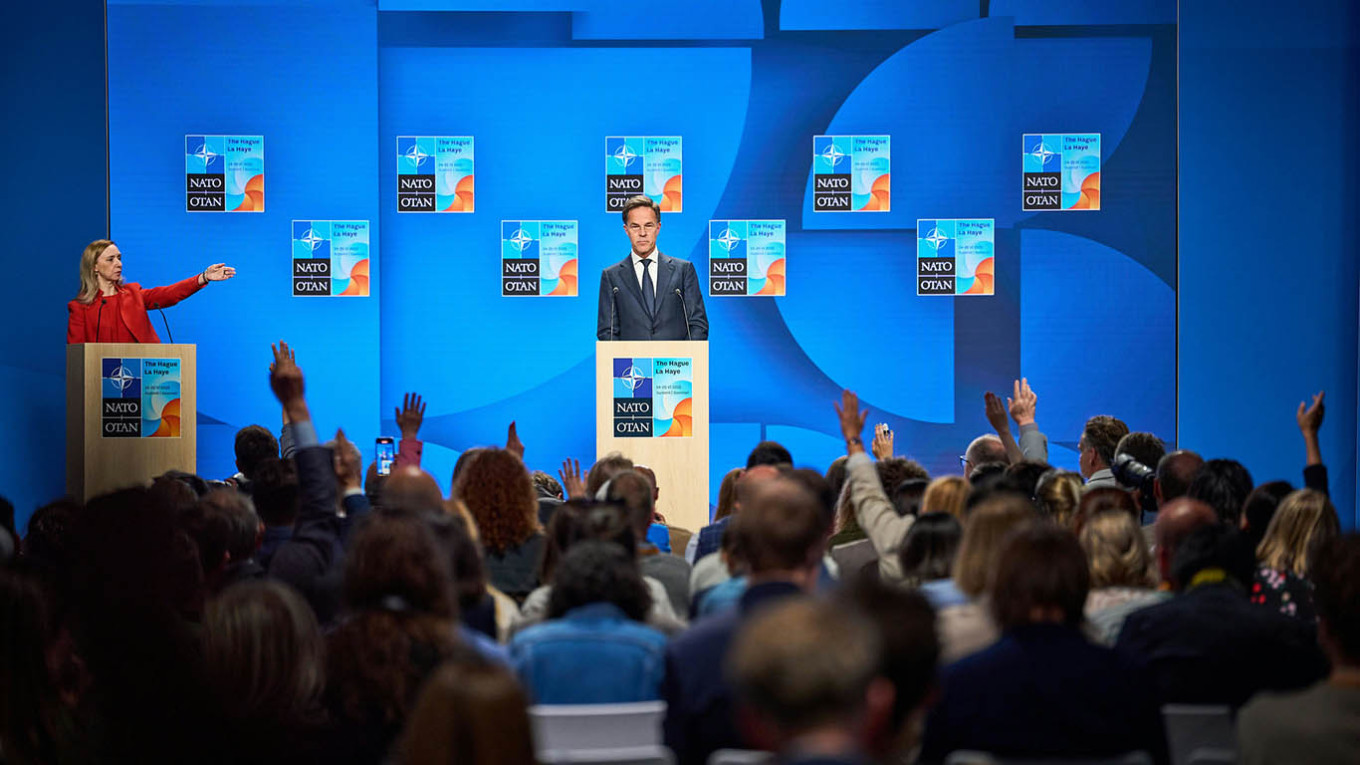On Wednesday, the NATO military alliance characterized Russia as a “long-term threat” to its collective security in a joint statement from their summit, which promised increased defense expenditure and reiterated steadfast support for Ukraine.
The 32 member countries of NATO expressed their unity in confronting significant security dangers and challenges, especially the enduring threat that Russia poses to Euro-Atlantic security. They agreed to allocate 5% of their GDP annually for defense and security by the year 2035.
The alliance asserted that this increase in spending is crucial to counteract what they describe as Russia’s escalating aggression, as well as to keep U.S. President Donald Trump engaged in NATO discussions, given his frequent critiques of European nations for their insufficient defense spending.
Last week, Russian President Vladimir Putin dismissed NATO’s intentions, asserting that Moscow would “undoubtedly counter all threats that arise.”
Putin has framed his extensive invasion of Ukraine as part of a larger confrontation with the West, insisting on written assurances that NATO will not extend further eastward. Ukraine has rejected any concessions and continues to seek security guarantees from Western nations.
In a statement released at a summit in The Hague, NATO leaders reiterated their “enduring sovereign commitments” to support Ukraine, emphasizing that its security is tied to theirs, and noted that the new spending objectives could assist in financing military aid to Kyiv.
Nonetheless, the language used in this year’s declaration was more measured compared to those in previous years and refrained from explicitly attributing blame to Russia for the full-scale invasion.
Trump introduced an element of uncertainty to the summit by appearing to question NATO’s collective defense clause — known as Article 5 — telling reporters en route to The Hague that its interpretation varies.
However, NATO Secretary General Mark Rutte stated that Trump remained “fully committed” to Article 5, which was reaffirmed in the summit’s concluding statement.
Reporting contributed by AFP.

